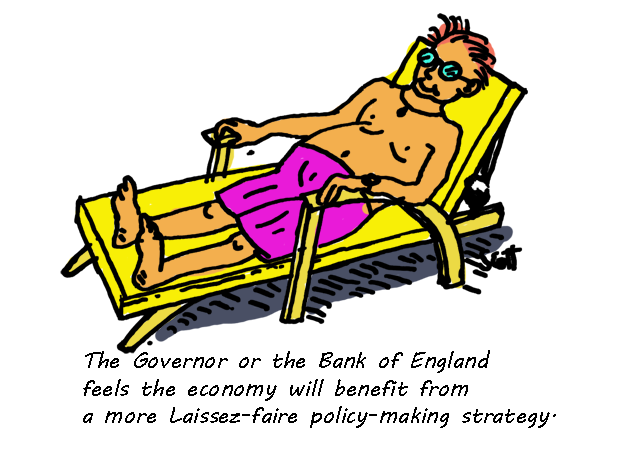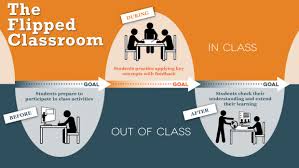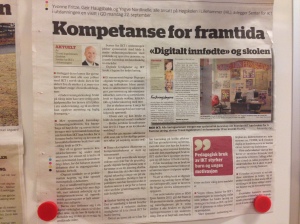
I løpet av tiden som lærerutdannere har jeg møtte mange studenter og leste mange oppgaver. Noen oppgaver sitter ekstra godt og har gjort inntrykk. Noen av disse vil deles her.
Gjervan.T.A.G.(2017) (2019). Oh snap! En studie om Snapchats potensiale for læringsfremming i skolen ( Ikke publisert i Brage fordi den er levert etter at biblioteket kun publiserer master oppgaver).
Sammendrag:
Teknologien utvikler seg raskt, og lite vet vi om hva fremtiden vil bringe. Derfor blir det å ha fokus på å danne selvregulerte elever som kan gå inn i fremtiden med evner til problemløsning, enda viktigere. Fordi Snapchat i dag er et populært medie blant barn og unge, ønsket jeg å undersøke om denne applikasjonen kunne brukes på en læringsrettet måte. I min metode har jeg brukt metodetriangulering ved bruk av intervju, survey og aksjonsforskning, hvor jeg har gjennomført et prosjekt ved bruk av Snapchat. Etterpå har jeg forsøkt å undersøke hvordan bruken av denne mobilapplikasjonen har påvirket elevenes selvregulering. Det kan virke som det å utforske nye sosiale medier som elevene bruker aktivt, kan bidra til å øke deres selvregulering, da de får observere bruken av applikasjonen i skolesammenheng. Videre ser en at vikarierende erfaringer gjennom mitt prosjekt kan virke positivt inn på lærerens motivasjon for å bruke applikasjonen ved senere anledning selv.
Sagen. (2017). Den moderne anerkjennelsen.
Sammendrag:
Ungdom bruker internett mer og mer, en sosial multiplikasjon i form av relasjoner. Sosiale medier har tatt over, i det minste kombinert seg selv med unges sosiale hverdag. De bruker stadig mer tid på nett og legger stadig mer vekt på hvem de er online kontra offline. Hva gjør egentlig dette med barns utvikling, og hva er så utrolig viktig med å være «tilstede» hele tiden? Sosial status og aksept. Hoennth taler om selvrealisering og selverdsettelse, men hvor er selverdsettelsen i verden hvor retusjering er et alternativ? Anerkjennelsen til Honneth fornyes og settes i et perspektiv som kan lettere relateres til den moderne ungdommen, ungdommen som heller fjerner sine mindre ønskede kvaliteter forså å bygge oppunder sitt eget glansbilde. Denne oppgaven tar utgangspunkt i dannelsesteorier fra Honneth, Dobson&Steinsholt samt digitale forskere som Primack, Shensha&Sidani for å se om det finnes en «ny» form for anerkjennelse i det samfunnet elevene opplever i dag.
Juven, H. (2019), Læreres digitale kompetanse i en digital skolehverdag
Funn i denne undersøkelsen viser at det er store forskjeller mellom lærernes tanker om egen digital kompetanse. For noen er egen digital kompetanse god, mens den for andre er den veldig dårlig. Manglende digital kompetanse kan være med på å gjøre lærernes hverdag ekstra krevende. Andre hovedfunn er at digitale verktøy ikke blir brukt like mye som det burde, selv om den digitale teknologien er på plass. I tillegg er det store variasjoner mellom hvor mye lærere bruker digitale verktøy, noen vil bruke det hele tiden og andre bruker det overhodet ikke. Funn viser også at det er en del utfordringer når det kommer til teknologibruk i skolen. Det kan blant annet bidra til nettmobbing, og det er mange fristelser for elevene på skjermen som kan gjøre at de blir distrahert. For eksempel ved at de går inn på andre nettsider eller apper enn hva de har fått beskjed om når digitale verktøy brukes i undervisningen.












